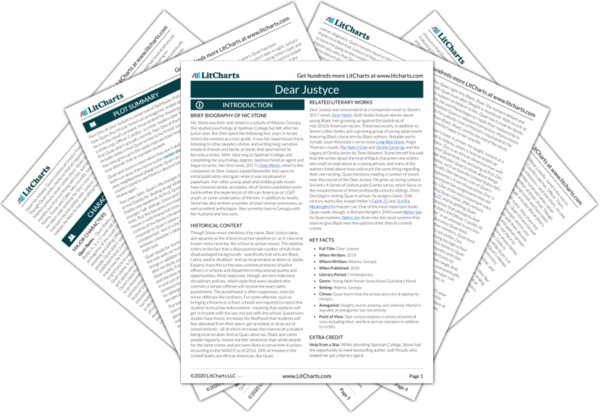AI ToolsNew
Tools to make learning and teaching easier
|
Previous
March 12
|
Dear Justyce: Chapter 5: Delinquent Summary & Analysis |
Next
Snapshot: A Boy Meeting a Man (2016)
|


Upgrade to unlock the analysis and theme tracking for all of Dear JustyceDear Justyce!
Get LitCharts A+